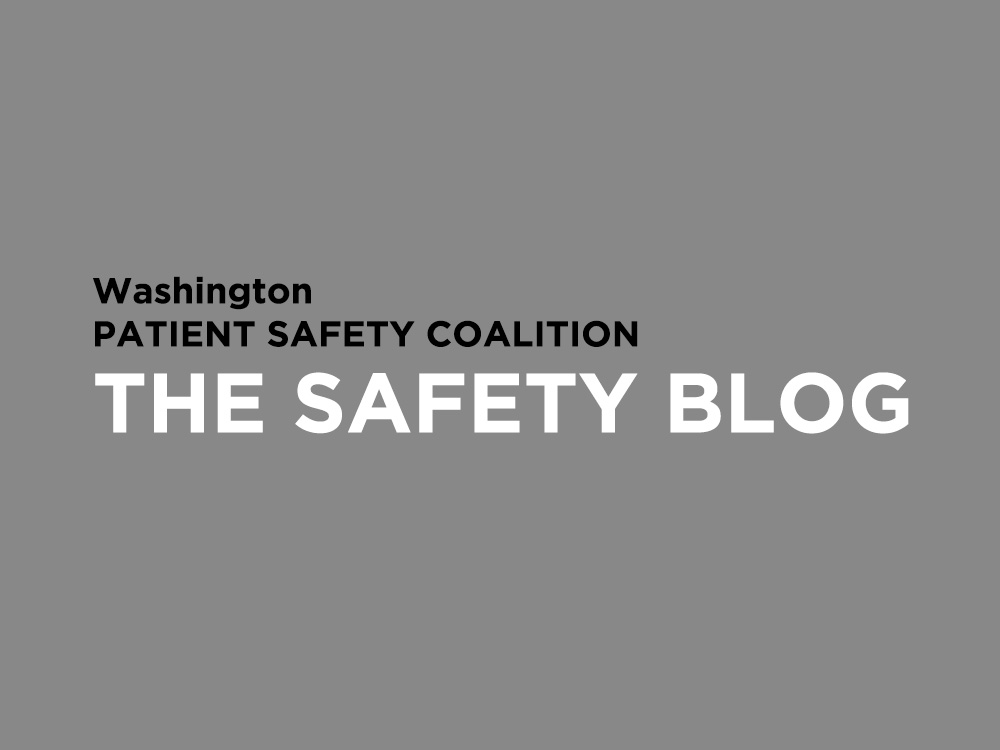Foundation Program Sites
- FHCQ Foundation for Health Care Quality
- COAP Care Outcomes Assessment Program
- Spine COAP Care Outcomes Assessment Program
- SCOAP Care Outcomes Assessment Program
- OBCOAP Care Outcomes Assessment Program
- CBDR
- Smooth Transitions
- WPSC Patient Safety Coalition
- Bree Collaborative Bree Collaborative
- Health Equity Health Equity
- Admin Simp
- Contact Us
The Safety Blog
The Power of Patient Stories
Stories have the ability to cut through the clutter of everyday detail to connect what we do to our higher purpose. A patient story is a brief message about the patient experience—the safety, quality, and service of the care we provide. Patient stories provide opportunities to learn from and … Read More.
Three Reasons Not to Keep a Personal Medicine List
by Miriam Marcus-Smith, RN, MHA Program Director, Washington Patient Safety Coalition Keeping a personal medicine list is an activity that combines two of the Washington Patient Safety Coalition’s priorities: engaging patients and families in their care, and improving medication-related safety. Here’s what should be on a medicine list, at a minimum: the name of the…
In The Safety Blog By foundation
The Call for Speakers and Call for Posters for the 2015 Northwest Patient Safety Conference are now open
Information is available on the Conference web page.
Using Antibiotics Wisely: the best weapon in the fight against “Super Bugs”
Antibiotics are the only drug where use in one patient can affect the drug’s effectiveness in another. According to the Centers for Disease Control, each year in the United States at least two million people become infected with bacteria that are resistant to antibiotics … Read More.
“Of all the forms of inequality, injustice in health care is the most shocking and inhumane.”
[two_third] by Sharon I. Eloranta, MD[br] Medical Director, Quality and Safety Initiatives[br] George W. Merck/Institute for Healthcare Improvement Fellow[br] Qualis Health [br][br] These were the words of Dr. Martin Luther King, Jr., in a speech to the Medical Committee for Human Rights, 1966. Many of today’s health care providers were not even born then –…
In The Safety Blog By foundation
Small Towns are Ripe for Team Training
[two_third] by Jennifer Bayersdorfer, MHA[br] System Director, Clinical Effectiveness & Quality[br] Providence Health & Services [br][br] I grew up in a small rural town in northwest Wisconsin. It was the kind of town where an unplanned visit to the emergency department is followed by three calls from people who spotted your car at the hospital,…
In The Safety Blog By foundation
Informed Decision-making
Informed decision-making is one of the best ways we can be engaged patients and advocates, and this is especially true when it comes to major decisions such as considering a move to a long-term care facility for yourself or a loved one. Among other helpful resources, the experts at … Read More.
Patient Safety: An Ounce of Prevention is Worth a Pound of Cure
Benjamin Franklin knew what he was talking about. As our healthcare system faces a number of challenges, the focus is appropriately shifting toward prevention of harm. Health care costs are rising and, as a result, health care reform is well underway. To date, cost containment mechanisms have been largely focused on limiting patient access to higher cost services and medications. However, this method often leads to preventable patient harm.
In The Safety Blog By foundation
Lessons From Community Coalitions
Here is a great little article from Qualis Health. The bullets of key learnings may seem fundamental but they are profound. Three years ago, there were only a few community-based efforts in our nation that focused on improving the safe and effective movement of patients … Read More.
Lessons About Patient and Family Involvement from the NPSF Congress
Confession is so good for the soul! As I’ve told people recently, although the focus of the Washington Patient Safety Coalition has been on improving safety for patients since its inception in 2002 – after all, we are the Washington Patient Safety Coalition — until last year we were heavily provider-centric.
In The Safety Blog By foundation
Recent Posts
- Advancing Patient Safety with Communication and Resolution Programs
- TakeCharge This Patient Safety Awareness Week: 5 Steps to Safer Healthcare
- Stigma & Bias in Healthcare: The Obstacles, Consequences and Changes Needed
- Agility in Crisis: How The Everett Clinic responded to COVID-19
- Collaboration over Competition: How Pediatric Hospitals Can Thrive When They Work Together
Archives
© 2025 Foundation for Health Care Quality | Privacy Statement | Disclaimer


